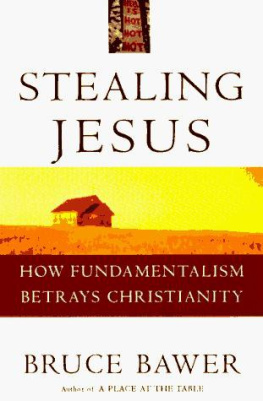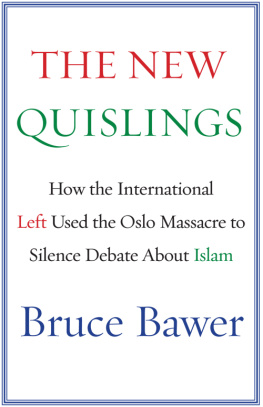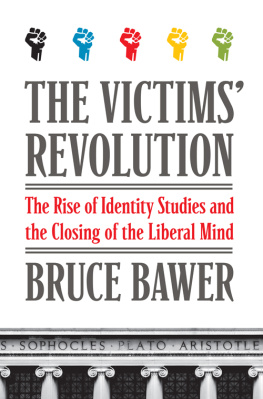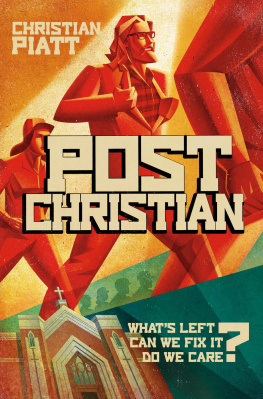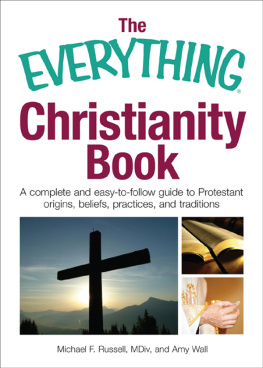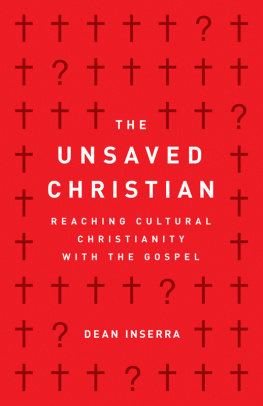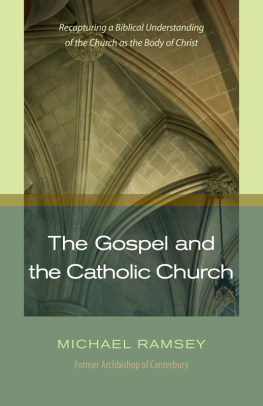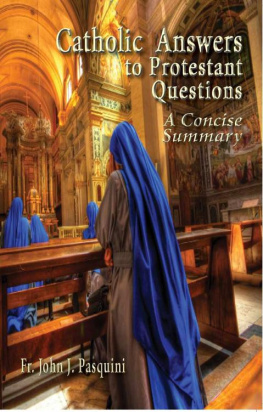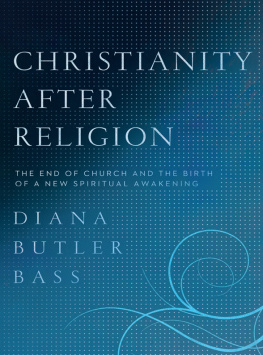STEALING JESUS
HOW FUNDAMENTALISM BETRAYS CHRISTIANITY
BRUCE BAWER
Crown Publishers, Inc. New York
The publisher has made every effort to trace ownership of all copyrighted materials in this work. If there are any errors or ommissions, corrections will gladly be made in future editions. Grateful acknowledgment is made for use of previously published materials: Excerpts taken from The Late Great Planet Earth by Hal Lindsey.
Copyright 1970, 1977 by Zondervan Publishing House. Used by permission of Zondervan Publishing House. Excerpts from This Present Darkness by Frank E. Peretti (Crossway Books). Copyright 1986 by Frank Peretti. Excerpts from The World's Religions by Huston Smith. Copyright 1991 by Huston Smith. Reprinted by permission of HarperCollins Publishers, Inc.
Copyright 1997 by Bruce Bawer
All rights reserved. No part of this book may be reproduced or transmitted in any form or by any means, electronic or mechanical, including photocopying, recording, or by any information storage and retrieval system, without permission in writing from the publisher.
Published by Crown Publishers, Inc., 201 East 50th Street,
New York, New York 10022.
Member of the Crown Publishing Group.
Random House, Inc. New York, Toronto, London, Sydney, Auckland
http://www.randomhouse.com/
CROWN and colophon are trademarks of Crown Publishers, Inc.
Printed in the United States of America
Design by Cynthia Dunne
Library of Congress Cataloging-in-Publication Data
Bawer, Bruce, 1956-
Stealing Jesus : how fundamentalism betrays Christianity / Bruce Bawer. 1st ed.
1. FundamentalismUnited StatesControversial literature. 2. Christianity
Essence, genius, nature. 3. United StatesChurch history. I. Tide.
BT82.2.B39 1997
277.3'0829dc21 97-20111 CIP
ISBN 0-517-70682-2
10 9 8 7 6 5 4
For Chris
Love never ends.
CONTENTS
ACKNOWLEDGMENTS
I must begin by thanking the Rev. Canon John Andrew, former rector of Saint Thomas Church in New York, whose sermons taught me how to think about Christianity.
For their formidable gifts, unwavering integrity, and loyal friendship, I thank my agent, Eric SimonofF, and my editors, Elaine Pfefferblit and Ann Patty, who are, respectively, the mother and stepmother of both this book and its predecessor, A Place at the Table. I am thankful as well to these people at Crown: Patrick Sheehan, Tina Constable, Amy Zevlin, David Tran, Cynthia Dunne, Robin Foster, John Sharp, and Jim Walsh. I give thanks also to Dr. James Dunn, the Rev. Charles Hefling, and the Rev. L. William Countryman for their meticulous reading and invaluable comments; to the Beyond Queer confraternity and my colleagues on the Sexuality Committee of the Diocese of New York for the stimulation of their ideas; to the officers of national Integrity (especially Kim Byham and Louie Crew) for affording me the opportunity to give a talk at their 1996 national convention in which I explored some of the questions dealt with in these pages; and to the Rev. Dan Ade of the Church of Saint Luke's in the Fields and everybody at Integrity/New York (especially Nick Dowen and Sandra Collins) for inviting me to deliver sermons which also anticipated parts of this book. I also thank my dear friends Frederick Morgan and Paula Deitz, editors of the Hudson Review, for encouraging my work in this direction. And I thank the editors of Trinity Church Wall Street's Trinity News for asking me to write an article for them about religion and film; its importance to this book will be readily apparent to them.
I am deeply grateful to my rector, the Rev. Herbert G. Draesel, and my fellow parishioners at the Church of the Holy Trinity for their fellowship; to my friend the Rev. Barbara Cawthorne Crafton for her inspiring writing and preaching; and to Barbara's flock at St. Clement's Church for welcoming me so warmly into their circle of communion on many Sunday mornings while I was writing this book.
For their moral support, I thank my parents and my friends Brendan McEntee, Chip Teply, Michael Joseph Gross, Kirk Read, Paul Jero-mack, Stephanie Cowell and Russell Clay, Sally and Mel Whitehead and the whole McGaughey-Whitehead-Kettles clan, David Attoe, Tom DePietro, Judy White, the Rev. Richard T. Nolan, Randall Curb, Michael Smith and David Millspaugh, Michael Lind, Norah Vincent, Joanne Zyontz, Joshua Sherman and Jorge Martin, Terry and Liz Teachout, Robert E. Wright, Harriet Zinnes, Paul Lucre, Leo Carroll, and Rob Morris and Steve Gunderson. I also wish to thank Alex Wiscovitch for being there and for saying to me, at my lowest point, the most important words any human being can say to another: "Dios te ama, y yo tambien." Alongside those words, the next several hundred pages are mere commentary.
Finally, I wish to mention my grandfather Harry Everett Thomas, Sr., whom I never knew but whose presence I felt strongly while writing this book.
"ARE YOU A CHRISTIAN?"
Spring 1996, New York City. I'm standing on a moderately crowded subway car reading a paperback when I look up to see a man about my agethirty-ninewho is standing a few feet away and staring at me with disconcerting intensity. For an instant we gaze speechlessly into each other's eyes. I expect him to say (as sometimes happens) that he's read one of my books and recognizes me from my dust-jacket photo. Instead he asks me a question.
"Are you a Christian?"
The question takes me aback, though I know why he has asked it. I am reading Rescuing the Bible from Fundamentalism, whose author, the Episcopal bishop John Shelby Spong, is notorious for his denial of many orthodox Christian doctrines and for his work on behalf of an inclusive church. It occurs to me that my interlocutor, whose question marks him as a born-again Christian, has probably noticed the word Bible, which is in large type, and cannot make out the rest of the title.
"Yes," I reply.
"Are you born again?" His eyes meet mine in an unsettlingly intimate gaze.
I pause for a moment. We have entered difficult territory. Am I born again? Eight years ago, after a decade of feeling that one couldn't be both homosexual and Christian, and after a year or so of listening to sermons that had, for the first time, explained Christianity in a way that made sense to me, I was baptized at Saint Thomas Episcopal Church in New York.
Am I born again? I look into the man's eyes. "I think so."
"Do you accept Jesus Christ as your personal savior?"
Another pause. "Yes..."
"Then you're born again!" he declares conclusively. "Next time someone asks, answer with confidence that you are!"
"Well," I reply, falling into a tone that sounds to me rather stiff and academic in comparison with his unrestrained ardor, "if I sounded hesitant, it's because I consider myself 'born again,' but by some people's definition I'm not."
I don't explain that part of the problem for many people, himself probably included, would be that I'm gay. In the kinds of churches whose members are in the habit of describing themselves as born again, being gay is considered utterly incompatible with being Christian. Another part of the problem is that I'm an Episcopalian, a member of a church that fundamentalists and many conservative evangelicals don't consider a legitimate church at all because of what they see as its theological leniency. Nor do I add that the book I'm reading was written by someone who has helped to change the Episcopal Church in ways that would doubtless horrify my interlocutor.
"How long have you been a Christian?" the man asks, his eyes fixed on mine.
"Eight years," I tell him.
He seems delighted by my answer. Why? Because I've been a Christian that long? Or because I became one as an adult, which presumably suggests that, like him, I'm a "born-again Christian" who went through a "conversion experience," and am thus more serious and committed than many nominal Christians? Or because I remember how many years it's beenwhich suggests that my conversion continues to be an important event for me?
Next page
